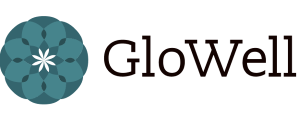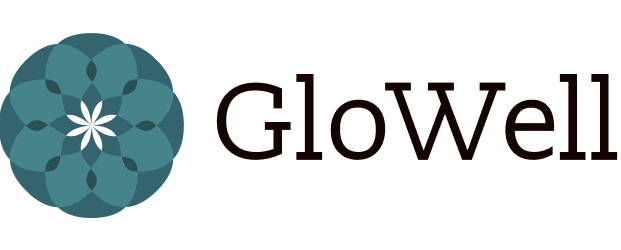Have you ever felt helpless and out of control?
I know I have.
This pandemic we are entrenched in has triggered fear – the root of all limiting beliefs – for many of us, me included. Shifting careers and re-launching my business just at the start of the pandemic has left me more vulnerable to my own set of limiting beliefs. I acknowledge the struggle is real. Being willing to acknowledge the struggle is the first step towards freedom.
Let’s talk about limiting beliefs for a moment. They restrict you in the following ways.
Limiting beliefs hold you back from embracing the truth of who you are.
Many times, limiting beliefs are created in childhood and reinforced into adulthood. Mine were. As a victim of familial narcissistic abuse, I was trapped in a web of lies about my worth, my value, and if I was lovable. I’ve had to take time to really identify what my limiting beliefs are so that I can get to the root of each one. It’s not enough to know what they are in your mind. You must write them down in order to begin to strategize how you want to start retraining your brain and body to no longer believe and react to your limiting beliefs.
Limiting beliefs play tricks with your mind. They can’t distinguish between truth in the moment and universal truth. They may try to tell your body that since one person – a parent or spouse – caused you pain, that every loved one will cause you pain. You must train your body to learn how to distinguish between being unsafe in the moment versus always feeling unsafe.
Limiting beliefs are so powerful because they are rooted in fear. They play on our insecurities and diminish our ability to see the possibilities and the freedom that is available when you clear them out. Love coupled with truth has the capacity to help you break free from them.
Limiting beliefs keep you from living out your purpose.
Each of us are uniquely created and qualified to help to solve challenges of all sizes in this life – including humanity altering challenges. Most people never take the time to invest in discovering their unique purpose because of their limiting beliefs. They let their fear get the best of them. They settle for being “average” and feeling “safe” instead of pressing through the pain to experience the freedom living with purpose can bring. They give up when the going gets tough not knowing how close they came to breaking through the resistance and achieving freedom.
Will it be hard? At times.
Life is hard.
It’s up to you to choose what type of hard you will experience. Do you want the proactive hard that is a result of pursuing your purpose or the reactive hard that is the result of reacting to all of the hurtful challenges that you have experienced?
Choose to be proactive versus reactive.
It is worth it.
Limiting beliefs shake your self-confidence.
Limiting beliefs cause you to shrink back when you should be moving forward. They hold your self-confidence hostage in a misguided means of self-preservation. They remind you of all the times you’ve tried and failed. They convince you that failing is a permanent destination, not a part of the learning process in order to achieve success.
Growing up with toxic parents, I felt like I was perpetually walking on eggshells. I lived in a state of feeling too much and not good enough all at the same time. It was exhausting. Too much of one thing or not enough another would trigger a toxic episode of gaslighting, criticism and/or the silent treatment. This chronic abuse left me with low self-confidence and high-performance anxiety. The only way to placate the beast, was to deliver the results that was expected of me. I then had to be okay when the bar moved to be out of reach if I proved that I was able to achieve what was asked of me. It is a true recipe for crazy making.
Looking back on that toxic behavior, I realize that what I initially attributed to my family’s poor behavior was not the truth. Growing up and into my 20’s, I wrongly believed their poor behavior was my fault and that they were unaware of the damage they were inflicting on me. I am no longer under that illusion. Their poor behavior was designed to groom me to be codependent, to fear people – no one else will ever love you, they whisper – and actively resisted helping me become a healthy, productive adult.
To all who have experienced toxic treatment that has resulted in limiting beliefs about who you are and what you deserve, I invite you to extend forgiveness to yourself, to place the blame where it belongs – on the toxic person – and start cultivating your inner cheerleader to help you overcome your inner critic.
I define forgiveness as surrendering your desire for revenge to God. Forgiveness does not excuse the toxic behavior. It does not require restoration of the relationship or reconciliation with toxic people. It releases you from the prison you’ve placed yourself in as a result of not properly responding to the trauma that happened to you. As children, we are not capable of grasping the idea that adults – especially our parents – are capable of making mistakes and are willfully causing us pain. We turn that false information and believe that their treatment is somehow something we deserve, even when that’s not true. I invite you to embrace the freedom that forgiveness can offer you. It opens the door to begin rebuilding your self-confidence from a place of truth and strength.
Limiting beliefs paralyze you into inaction.
Limiting beliefs are super effective at telling your brain that it is unsafe in order to trigger feelings of panic and overwhelm, even when it’s not true. They can keep your body in a state of fight, flight, or freeze. When they do this, they trigger a physical and emotional response in your body. This response is designed to produce results that leave you feeling incapable of taking action.
This too is something I’ve personally wrestled with. The prolonged narcissistic abuse left me anxious, clinically depressed, trapped in a toxic cycle of fear, panic, pain, and fatigue. It literally sidelined me in college where I spent half of my sophomore year sleeping 16 hours a day. Even since college, I have been battling these physical and emotional responses as I’ve been searching for the right tools to properly handle my emotions. I’ve spent so much time working with all kinds of doctors to find relief for the symptoms that my body was manifesting as a result of unresolved limiting beliefs and trauma.
If limiting beliefs are paralyzing you, I encourage you to explore finding a trauma-informed therapist who can help you create tools to help you properly process your negative feelings and emotions.
No matter how much you try to trick your mind into believing you are safe, if your body doesn’t believe it, you will keep experiencing the physical symptoms associated with fight, flight, or freeze. Do your research into therapies like EMDR and somatic experiencing to see if they may help you get a better handle on your physical symptoms as you work through your limiting beliefs. While talk therapy has its place in your healing journey, it isn’t always the best when you are trying to overcome your biological responses to a prolonged battle against limiting beliefs.
Limiting beliefs tell you lies.
They then reinforce that lie by filtering how you view the world to confirm its narrative. This creates tremendous confusion and cognitive dissidence. Limiting beliefs tell you that two plus two equals five. Intellectually you may know that two plus two equals four, but every time you apply that answer to the question, it still manages to turn out to be the wrong one. When you don’t learn how to build healthy attachments to others, it impacts the quality of your life. The good news is you don’t have to remain in unhealthy attachment patterns. You can learn to create healthy attachment patterns.
I know. I know. There has to be more to life than being permanently restricted by your limiting beliefs.
How to Begin Healing Limiting Beliefs
Gratitude is the first step in your healing journey. I know that may seem counterintuitive but finding reasons to be grateful helps rewire your brain. You must learn how to separate out the gift hidden in the midst of the pain. There is always at least one gift in the struggle. Start keeping a gratitude journal. Start small. List 5 things each day you are grateful for. It’s okay if you have to repeat the same ones for a while. When you do so, you begin to appreciate what you’ve been given and start to find the hidden wisdom buried in the midst of pain, hardship, and loss. If you can learn to cultivate gratitude regardless of what you are experiencing, it will help you have the courage to start identifying all that is restricting you. You cannot get free from what you will not acknowledge. Gratitude helps combat limiting beliefs by lifting the weight of negativity off of your mind and helps you break through the deception limiting beliefs bring.
Practicing gratitude will help you learn how to silence your inner critic and cultivate your inner cheerleader. I know this can seem a bit daunting, but the reward is worth the investment. Gratitude empowers your inner cheerleader and helps you to maintain a healthy, positive perspective. Gratitude is to your inner cheerleader as limiting beliefs are to your inner critic. Shift your focus from negativity and small-mindedness to infinite gratitude.
Mantras, affirmations, and scriptures are great tools to help you break off the lies of limiting beliefs. They affirm you and give your inner cheerleader ammunition to help combat limiting beliefs when they show up.
In my own healing journey, I’ve discovered solutions to the challenges I face by being willing to take intense ownership of my life. Intense ownership is about being intentional and proactive about the things that matter in life. Passively waiting for change only results in more of what you are currently experiencing. When you choose to actively take intense ownership of your life, you embark on the journey to your healing, your freedom, and the chance to live out your dreams.
So, I invite you to take intense ownership of your life.
The life you love awaits.













Join the GloWell Community on Social!
Don't risk missing a single thing. Follow us on social and become part of the GloWell community.